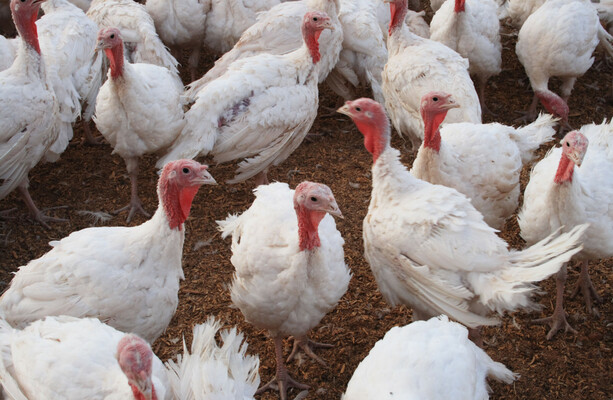Copyright thejournal

We need your help now Support from readers like you keeps The Journal open. You are visiting us because we have something you value. Independent, unbiased news that tells the truth. Advertising revenue goes some way to support our mission, but this year it has not been enough. If you've seen value in our reporting, please contribute what you can, so we can continue to produce accurate and meaningful journalism. For everyone who needs it. One-off amount I already contribute Sign in. It’s quick, free and it’s up to you. An account is an optional way to support the work we do. Find out more. Investigates Investigates Money Diaries The Journal TV Climate Crisis Cost of Living Road Safety Newsletters Temperature Check Inside the Newsroom The Journal Investigates Daft.ie Property Allianz Home The 42 Sport TG4 Entertainment The Explainer A deep dive into one big news story Sport meets news, current affairs, society & pop culture have your say Or create a free account to join the discussion Advertisement More Stories Alamy Stock Photo Dr Catherine Conlon Bird flu has been confirmed in Ireland - what are the risks? The public health doctor says that while poultry farms must house their flocks ahead of Christmas, transmission to humans is rare. 7.01am, 10 Nov 2025 Share options AS WE PREPARE for the festive season, anticipating the steaming aromatic turkey or duck taking pride of place on the family dinner table, that much-treasured moment is threatened by the recent arrival of bird flu among commercial turkey populations in Ireland. Bird flu outbreaks have significant financial implications to commercial poultry farmers, as well as to wildlife parks housing captive birds. Egg prices soared around the world earlier this year in both Europe and the US as outbreaks threatened the industry. However, the potential threat to humans is also a real concern. Europe has been hit by a spike in bird flu outbreaks this autumn, with 15 out of 27 countries reporting outbreaks on farms this season. There has been an unusually high number of outbreaks (688) compared to 189 last year – raising fears for commercial flocks, with particularly high numbers of cases reported in Germany and France. Now, Irish poultry farm’s worst fears have been realised with the highly pathogenic H5N1 strain of the virus being detected in commercial poultry farms in Carlow and Kells, Co Meath. These are the first outbreaks in farms in Ireland in three years and have sparked an immediate uptick in biosecurity measures in an attempt to curtail further spread. There is now a race to lockdown poultry before further cases emerge. The Netherlands, Belgium and France imposed a nationwide compulsory housing order for captive birds and commercial poultry flocks in October, while England followed suit on 4 November and Ireland on 10 November. Further biosecurity measures include three kilometre protection zones around the affected farms with a wider 10km surveillance zone around the sites. Access to the sites will be limited, with disinfected footwear and separate clothing for different areas on the site. Any movement of birds in and out of these zones requires a vet certificate. However, the threat of bird flu is difficult to contain, due to its link with the migratory path of wild birds in their seasonal search for warmer climes and longer daylight hours. In 2024, a polar bear in Alaska tested positive for bird flu, while at the opposite end of the world on Antarctica, several predatory seabirds died from the virus – the first time bird flu was recorded on frozen mainland. Flu has long been an overlooked threat to public health. The first record of an influenza pandemic occurred in 1518, but earlier references to illness possibly caused by influenza date as early as 412BC documented in ‘Of the Epidemics’ by the Greek physician Hippocrates. The World Health Organisation estimate that flu infects one billion people every year, causing severe illness in three-to-five million people, and hundreds of thousands of deaths. Advertisement The Spanish flu epidemic caused by the H1N1 influenza strain killed 50 million people worldwide. The H1N1 virus was also responsible for the most recent Influenza A pandemic in 2009, commonly known as the swine flu pandemic. Experts believe this was caused by the mixing of multiple different types of influenza A virus- mingling their genetic information to produce a new and especially virulent strain of the virus that affected up to 1.4 billion people. It is this potential for influenza A viruses that typically infect animals to cause pandemics in humans, as occurred with the swine flu pandemic, that is concerning experts about ongoing high level of avian influenza in wild birds. To limit the mixing of Influenza A viruses, the flu vaccine is being offered free of charge to people who come into regular contact with poultry and other captive birds “to recognise the risk in those occupations.” Dr Éamon O’Moore, Director of National Health Protection with the HSE, told RTÉ recently that there is a “theoretical risk of mixing” if someone is infected with flu typically found in humans and bird flu at the same time. The risk of this occurring is lowered if poultry workers receive flu vaccination to reduce the risk of contracting seasonal influenza. Transmission Over the past two decades, highly pathogenic avian influenza (HPAI) has been spreading from Asia to Europe, the Middle East and North Africa – mainly through bird migration. Poultry farms with thousands of turkeys, ducks and geese in close proximity heighten the risk of transmission following direct contact with infected birds or contaminated surfaces. Detection of bird flu in a flock means the entire flock has to be slaughtered, along with introduction of further measures to prevent spread to other farms. Transmission of bird flu to people can occur, but rarely. To date, it has required close contact with live infected birds or their droppings, or following slaughtering, butchering or preparing infected poultry for eating. Symptoms of bird flu in people commonly include fever, flu like symptoms – cough, runny nose, sore throat or shortness of breath. They may develop diarrhoea in the early stages as well as headache or vomiting. Transmission of bird flu to humans in Asia can produce serious, potentially life- threatening illness. The WHO has reported about 900 cases in 23 countries over the last two decades, half of whom have died. However, the Health Protection Surveillance Centre (HPSC) state the bird flu that is present in Europe at the moment is different from the version seen in Asia and to date has produced only mild symptoms in people in Europe. The highly pathogenic status of bird flu refers to the impact on birds – not people. There is no evidence that properly-cooked poultry or eggs can infect people with bird flu. Irish poultry and eggs, when properly cooked, are perfectly safe to eat. Thorough handwashing with soap and water should occur after handling raw eggs or poultry, as well as comprehensive cleaning of surfaces and utensils that have come in contact with raw eggs and poultry meat. Related Reads Second bird flu outbreak in commercial turkey flock confirmed in Co Meath All Irish poultry subject to Covid-style lockdowns from Monday in bid to contain bird flu Bird flu poses a significant threat to wild birds populations as well as the poultry industry, other mammals, human health and the economy. It can cause severe illness or death in humans, although human cases are rare. The impact on humans includes the risk of transmission of bird flu from sick birds to humans – currently a low risk, but that can change. Former head of the WHO’s influenza programme Klaus Stöhr warned earlier this month not to underestimate the risk of a bird flu triggering the next global pandemic. “In principal, the H5N1 virus has everything it takes to trigger a pandemic,” he said in October. While Stöhr emphasised the risk of infection for humans has so far been extremely low, he issued the following advice. “Anyone who comes across dead animals, for example when out walking, should not touch them, keep their distance, keep their dog back and inform the relevant veterinary office.” If you find dead waterfowl (ducks, geese or swans) or other dead wild birds, report them to the Department of Agriculture at 4928026 or online. As we prepare for the looming Christmas festivities and make arrangements to order the classic centrepiece of the traditional feast, remember the efforts that have gone into making that happen and the ongoing efforts we can all make to mitigate further transmission of bird flu in the coming weeks. Dr Catherine Conlon is a public health doctor and former director of human health and nutrition at Safefood. Readers like you are keeping these stories free for everyone... A mix of advertising and supporting contributions helps keep paywalls away from valuable information like this article. Over 5,000 readers like you have already stepped up and support us with a monthly payment or a once-off donation. Support The Journal Dr Catherine Conlon Viewcomments Send Tip or Correction Embed this post To embed this post, copy the code below on your site Email “Dr Catherine Conlon: Bird flu has been confirmed in Ireland - what are the risks?”. Recipient's Email Feedback on “Dr Catherine Conlon: Bird flu has been confirmed in Ireland - what are the risks?”. Your Feedback Your Email (optional) Report a Comment Please select the reason for reporting this comment. Please give full details of the problem with the comment... This is YOUR comments community. Stay civil, stay constructive, stay on topic. Please familiarise yourself with our comments policy before taking part. Leave a Comment Submit a report Please help us understand how this comment violates our community guidelines. Damaging the good reputation of someone, slander, or libel. Racism or Hate speech An attack on an individual or group based on religion, race, gender, or beliefs. Trolling or Off-topic An attempt to derail the discussion. Inappropriate language Profanity, obscenity, vulgarity, or slurs. Advertising, phishing, scamming, bots, or repetitive posts. Please provide additional information Thank you for the feedback Your feedback has been sent to our team for review. Leave a commentcancel Newly created accounts can only comment using The Journal app. This is to add an extra layer of security to account creation. Download and sign into the app to continue. Access to the comments facility has been disabled for this user View our policy ⚠️ Duplicate comment Post Comment have your say Or create a free account to join the discussion Avian Influenza News in 60 seconds The Morning Lead Irish man speaks out about failed testes surgery as hospital apologises decades later Eimer McAuley TYPHOON FUNG-WONG At least two dead and a million displaced after typhoon in Philippines 12 mins ago Sesame Street Quiz: How much do you know about Sesame Street? United Nations UNRWA's Irish deputy director on how the Israeli ban continues to hinder aid delivery in Gaza David MacRedmond Here's What Happened Today: Sunday spending and saving Money Diaries: A marketing manager on €63K living in Dublin Passing the torch Life by President’s side has been wonderful, says Sabina Higgins tidal surge Three dead and 15 injured as strong waves sweep people into ocean on Tenerife BBC director general Tim Davie resigns after criticism of Trump documentary edit Dublin Pubs Dublin's lost pubs: The old haunts that once dotted the capital city Weather Warnings Status Yellow rain warnings issued for three counties – but it might stay a bit drier today more from us Investigates Money Diaries The Journal TV Journal Media Advertise With Us About FactCheck Our Network FactCheck Knowledge Bank Terms & Legal Notices Terms of Use Cookies & Privacy Advertising Competition more from us TV Listings GAA Fixtures The Video Review Journal Media Advertise With Us Our Network The Journal FactCheck Knowledge Bank Terms & Legal Notices Terms of Use Cookies & Privacy Advertising Competition © 2025 Journal Media Ltd Terms of Use Cookies & Privacy Advertising Competition Switch to Desktop Switch to Mobile The Journal supports the work of the Press Council of Ireland and the Office of the Press Ombudsman, and our staff operate within the Code of Practice. You can obtain a copy of the Code, or contact the Council, at https://www.presscouncil.ie, PH: (01) 6489130, Lo-Call 1800 208 080 or email: mailto:info@presscouncil.ie Report an error, omission or problem: Your Email (optional) Create Email Alert Create an email alert based on the current article Email Address One email every morning As soon as new articles come online



